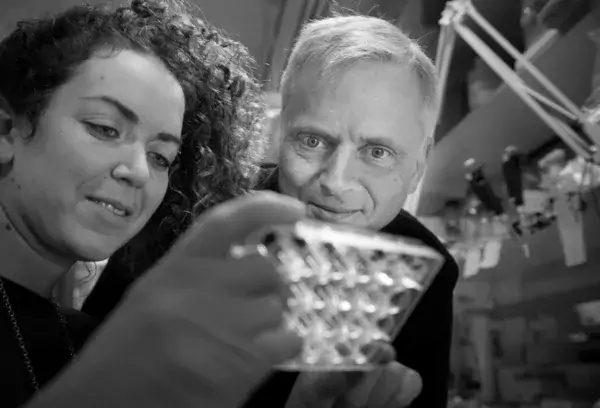
Research at Karolinska Institutet
Karolinska Institutet accounts for the single largest share of all academic medical research conducted in Sweden. The research spans the entire biomedical field — from basic experimental research to clinical studies in collaboration with the health care system. Pioneering research is conducted here in, for example, cancer, neuroscience, immunology, epidemiology, nursing and global health.
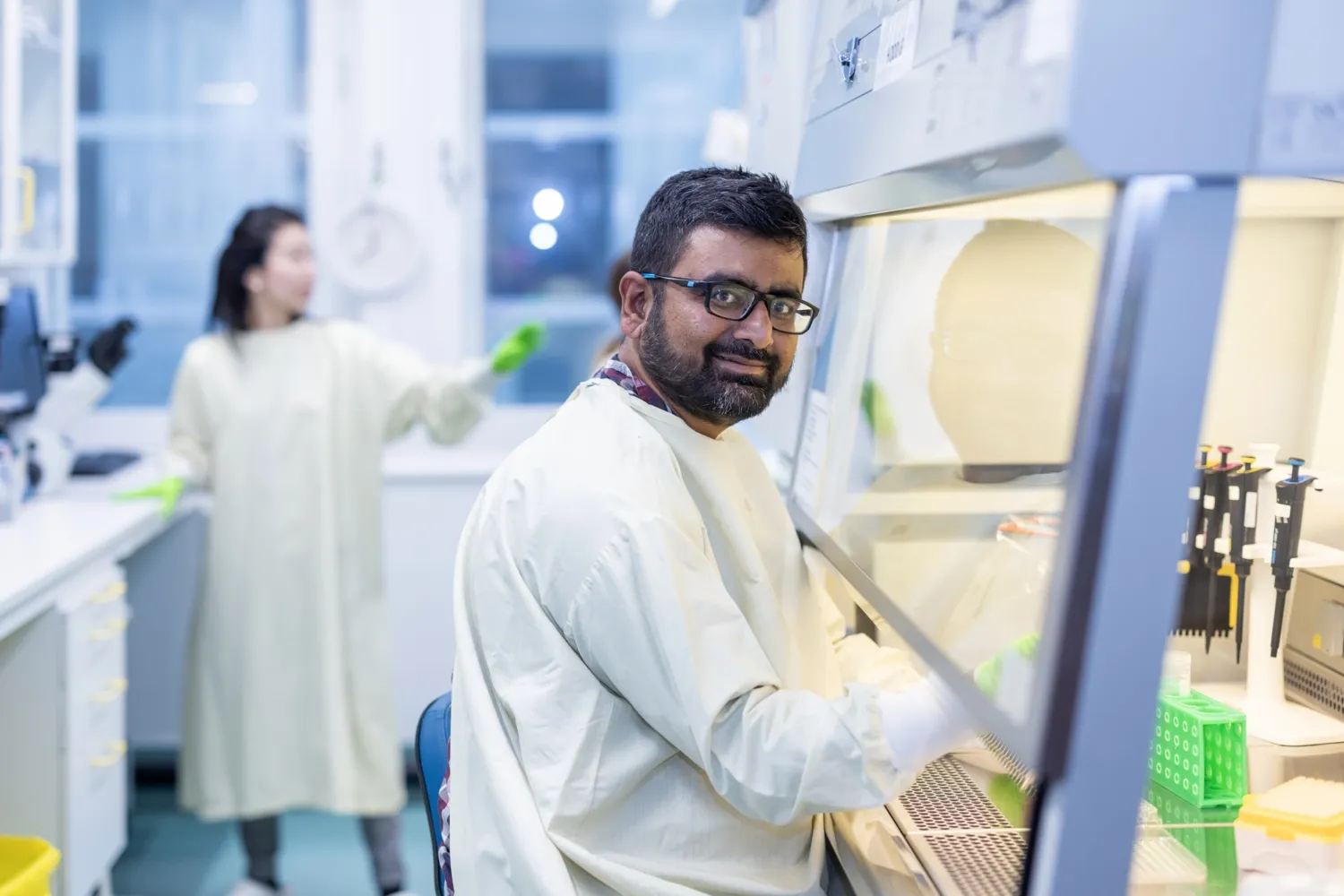 Photo: Liza Simonsson
Photo: Liza SimonssonCall for 20 Assistant Professor positions
Do you want to become a future top researcher at a world-leading medical university? Karolinska Institutet is recruiting outstanding early-career researchers with particularly excellent scientific merits and future potential.
What we offer: 20 Assistant Professor positions with a generous funding package. Don’t miss the opportunity to apply — join a global community of excellence!
Resources in brief
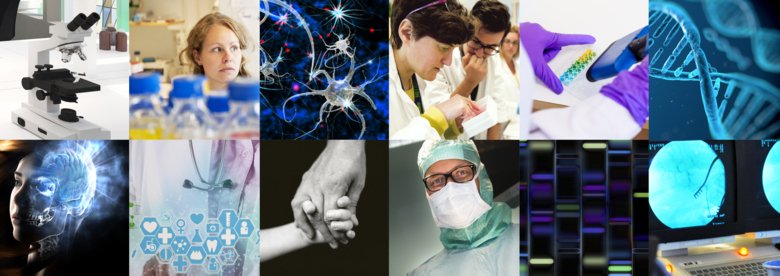 Photo: N/A
Photo: N/A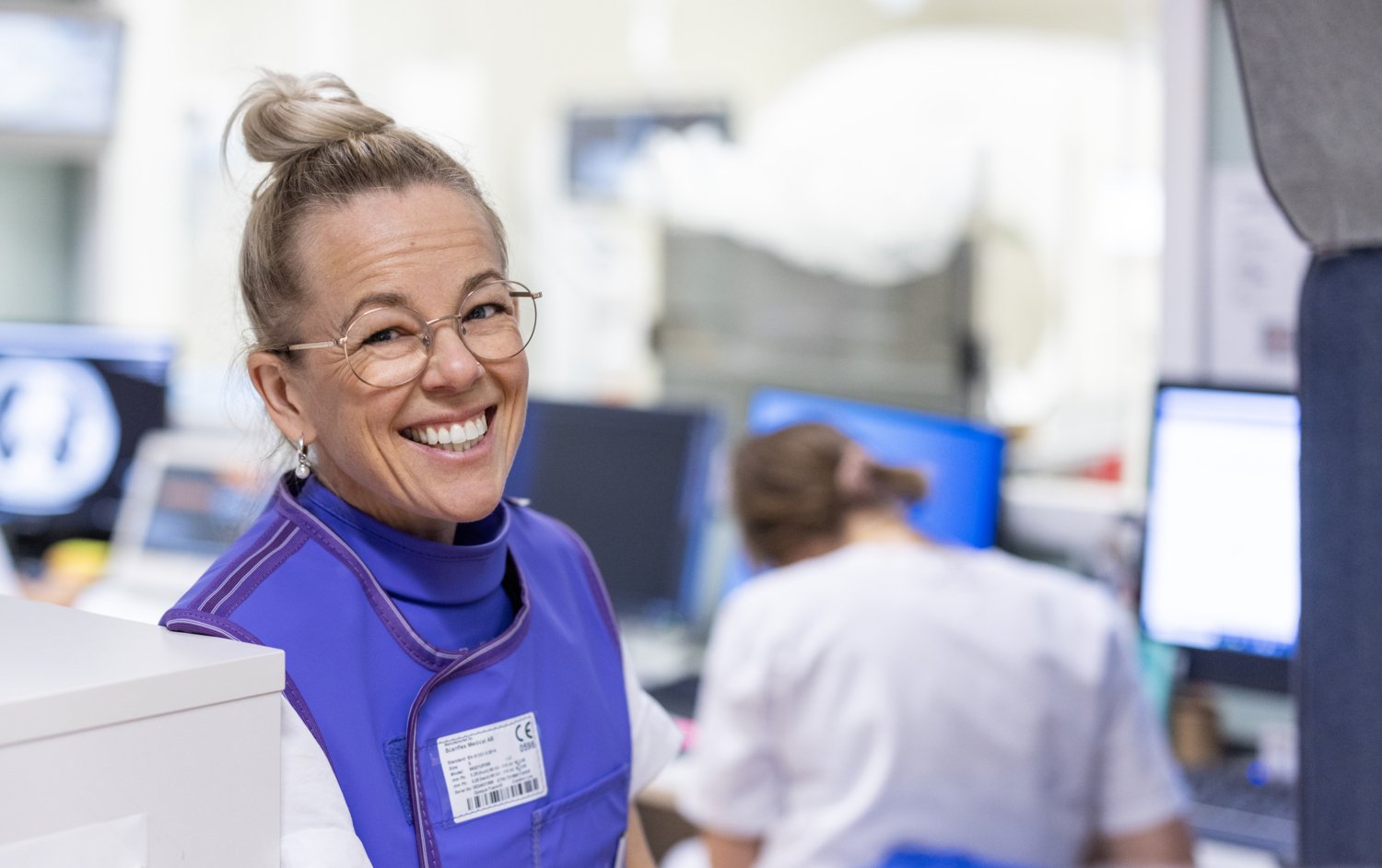 Photo: Liza Simonsson
Photo: Liza SimonssonWhy become a researcher at KI?
Academic freedom and work-life balance are two aspects that attract many researchers and lecturers to Sweden and Karolinska Institutet. As a researcher here, you will have the right to commercialise your research, and even get support from the university in doing so. Find out more about the many benefits of working at KI.
 Photo: Pixabay
Photo: PixabayResearch groups by subject
Karolinska Institutet has about 800 teams, groups and larger units in research, distributed across 21 departments and three departmental or campus groups. Find an overview of these groupings by research subject, based on the Swedish standard classification.
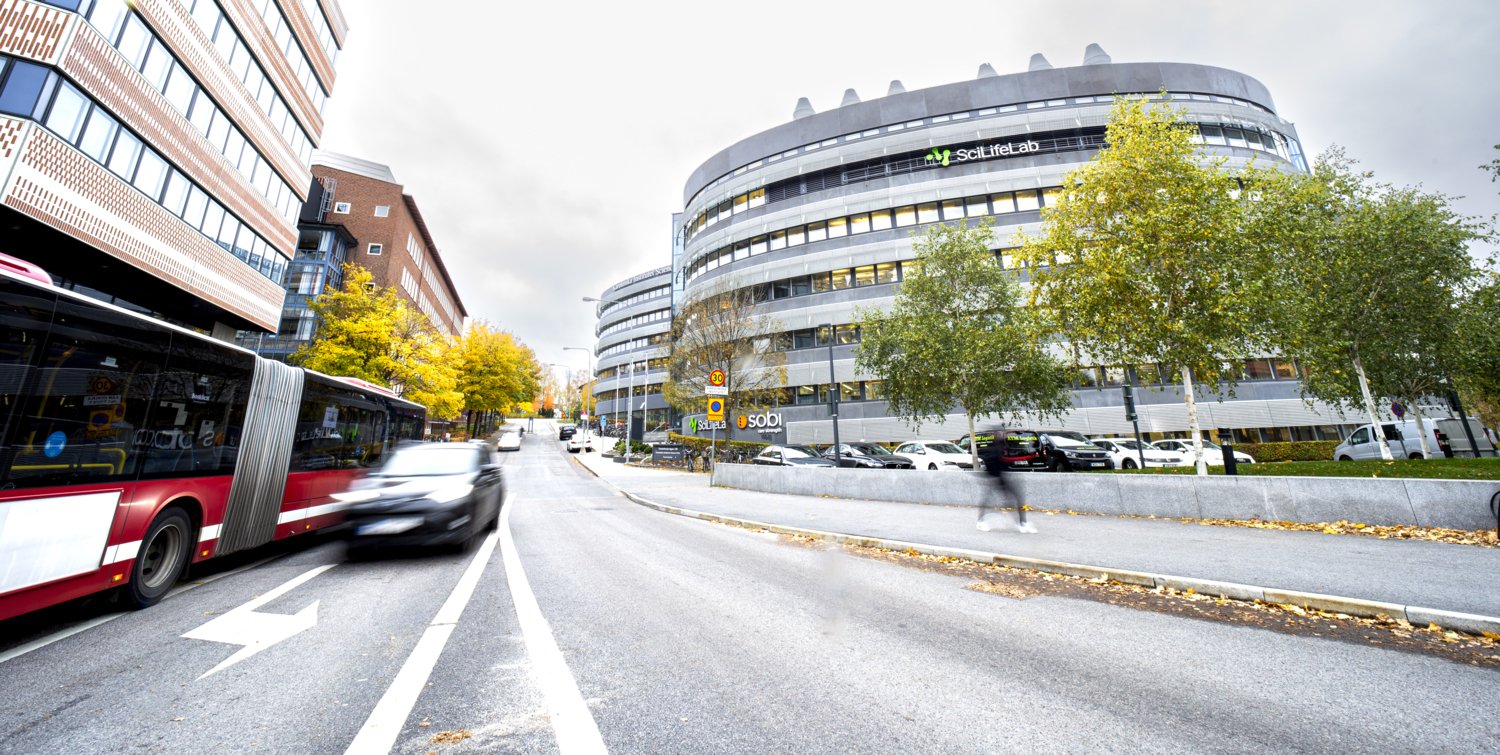 Photo: Niklas Norberg Wirtén
Photo: Niklas Norberg WirténSciLifeLab
SciLifeLab is a collaboration between multiple Swedish universities, and a national research infrastructure. One of the core missions of SciLifeLab is to provide technologies facilitating the large-scale analysis of biological processes at the molecular level.
Selected news & events
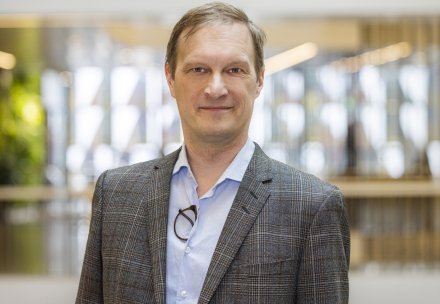
KI is recruiting 20 Assistant Professors with a focus on excellence
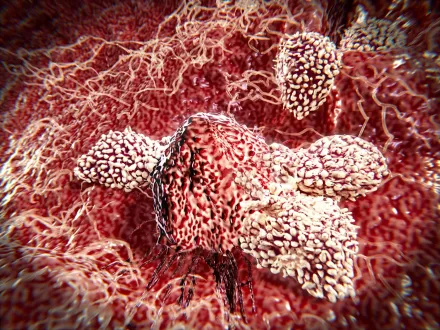
Celebrating 50 years of NK cell research
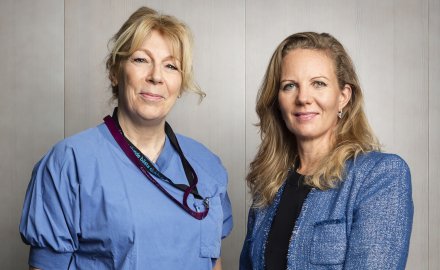
KI establishes new endowment professorship in integrative odontology
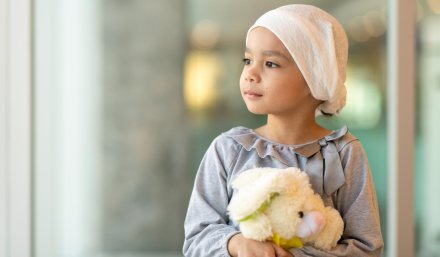
Precision medicine in paediatric oncology
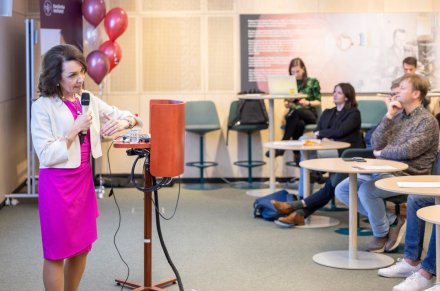
Long partnership with Johnson & Johnson paves way for therapies of the future

Karolinska Comprehensive Cancer Center first in Sweden to renew accreditation

Karolinska Institutet excels in the Swedish Research Council’s evaluation of medical research
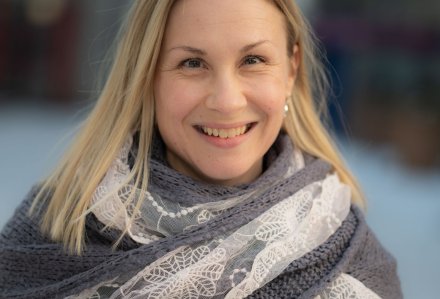
KI researcher Pauliina Damdimopoulou appointed ERC ambassador
Meet our researchers
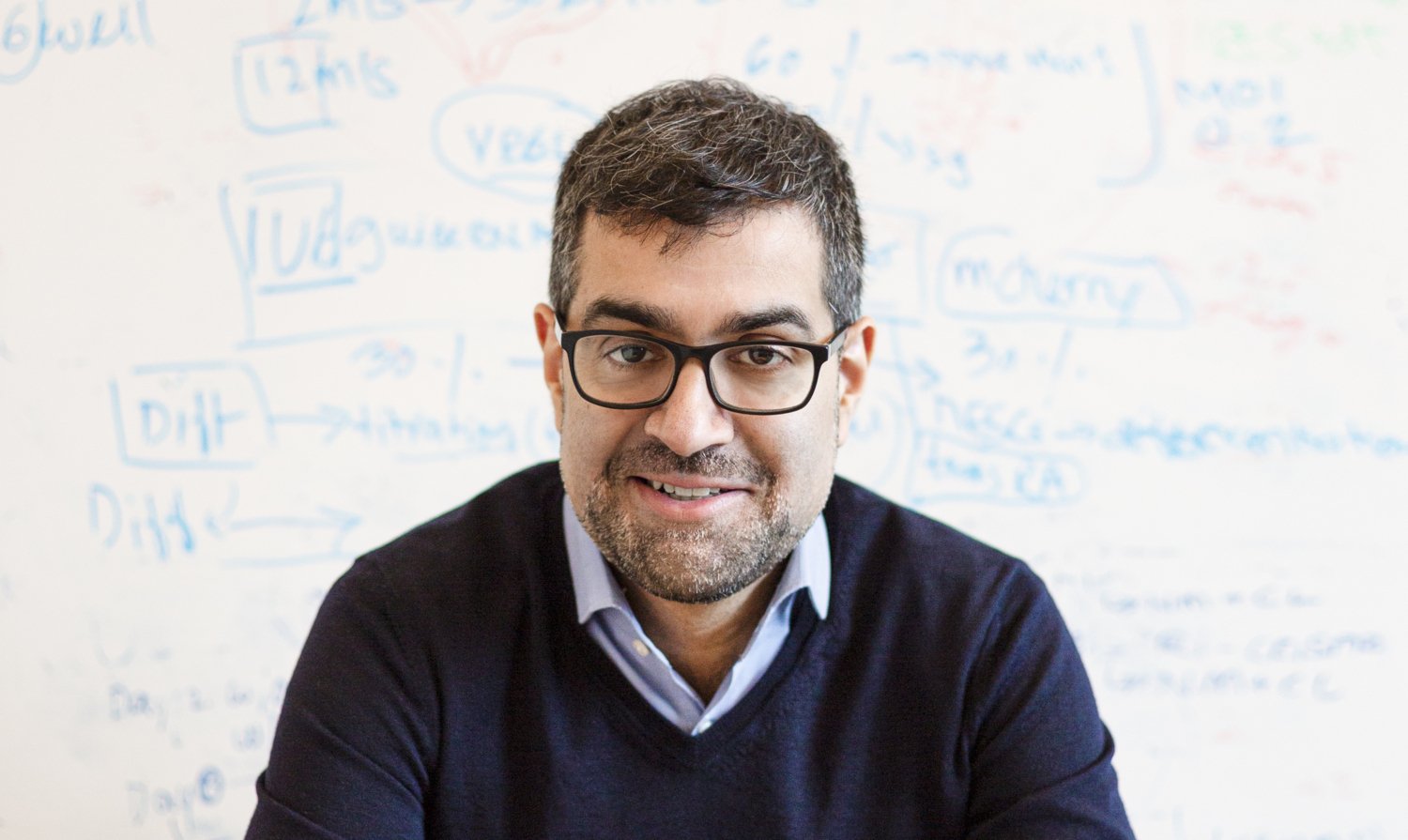 Photo: Martin Stenmark
Photo: Martin StenmarkGonçalo Castelo-Branco wants to fundamentally understand MS
His research shows molecular changes in brain cells when a person has Multiple sclerosis (MS). But it is still unclear whether they contribute to - or even protect against - the disease. Gonçalo Castelo-Branco is open to the answer.
 Photo: Martin Stenmark
Photo: Martin StenmarkSmall structures can explain severe illness
Professor Anna Wredenberg wants to understand in detail how the body works. That is why she delves into the unknown world of mitochondria. For patients with hereditary genetic diseases, this could mean a long-awaited diagnosis.
 Photo: Martin Stenmark
Photo: Martin StenmarkPetter Brodin wants to understand your immune system
Is your immune system functioning as it should? The question is not as simple to answer as one might think. Professor Petter Brodin is trying to understand more about it. At the same time, he hopes to help patients that are severely affected with post-COVID and other conditions where the regulation of the immune system is not working.
 Photo: Johan Marklund
Photo: Johan MarklundExplores genetic and environmental causes of autism
Associate Professor Kristiina Tammimies conducts frontline research on the medical, genetic, and molecular underpinnings of autism and other neurodevelopmental disorders. Among other things, she and her research team are working on the complex and much debated issue of heredity versus environment as a cause of autism.
In depth articles and features

How mini organs can answer difficult research questions
Researchers are getting better at growing miniature organs and embryos in test tubes or on chips. This creates new opportunities for answering research questions while reducing the need for animal testing in some cases.
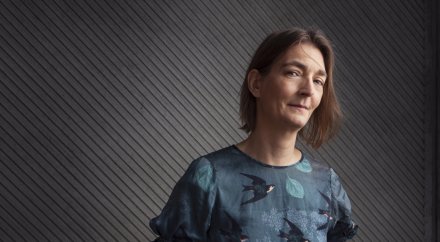
Effective treatment for PTSD should reach more patients
Treatment for post-traumatic stress disorder (PTSD) is effective and can cure the majority of those affected, according to psychologist and researcher Maria Bragesjö, who introduced the treatment method to Sweden. Through her research, she hopes even more people will receive help.

Drastic increase in Achilles tendon injuries
The number of Achilles tendon injuries has drastically increased over the past 20 years. Simon Svedman's thesis shows that blood clots are a common complication that needs better prevention.

What your brain is up to when resting
When we are not doing anything in particular, the brain is still busy producing thoughts and daydreams. Research shows that mental chatter increase if we are sleep deprived and can sometimes even become a barrier to sleeping. But there are techniques for those who need a break from their thoughts.

Mucus and snot — more important than you think
When you hear the words mucus and snot, you might think of colds, snails or drooling babies. But the runny, sometimes sticky substance often plays a vital role in our lives. And mucus also has potential to be a medicine.
 Photo: GettyImages,Getty Images/iStockphoto
Photo: GettyImages,Getty Images/iStockphotoAir pollution — the dirt we breathe
 Photo: Johan Nord
Photo: Johan NordPalliative care
 Photo: Arad Golan Coll
Photo: Arad Golan CollRadiotherapy charged with new energy
 Photo: GettyImages
Photo: GettyImagesNicotine in a new guise
More on research at KI
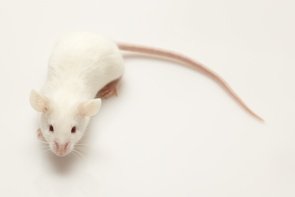
Animal research
Animal research is strictly regulated and comes under both Swedish and EU legislation on animal welfare.
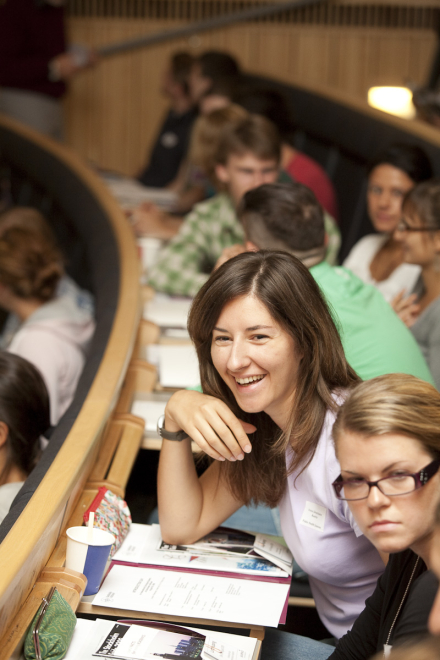
Collaboration worldwide
International collaborations are crucial for KI to fulfill our mission and strive towards better health for all.
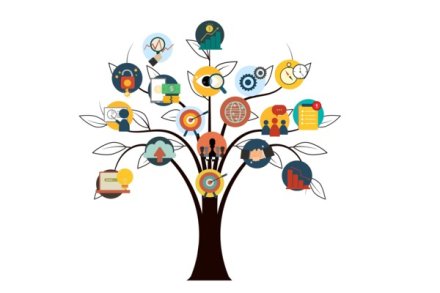
Departments and their research
The 21 departments at KI are central to the academic environment, with responsibilities encompassing scientific strategy, finance, and administration. Find an overview of their research areas.
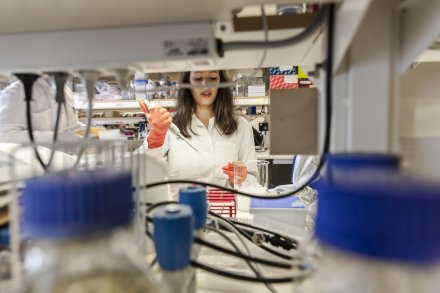
Doctoral education
World-class research and specialised research environments create a breeding ground for PhD studies at KI.

New doctoral theses
Each year, around 350 doctoral students at KI will present their thesis to their peers in science.

Preparedness for changing conditions in the US
Karolinska Institutet has initiated an enhanced preparedness to monitor, analyze, and respond to changes in the U.S. that may impact research and higher education.
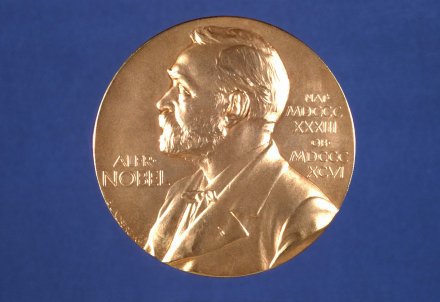
The Nobel Prize in Physiology or Medicine
In his will, Alfred Nobel appointed Karolinska Institutet to award the Nobel Prize in Physiology or Medicine.
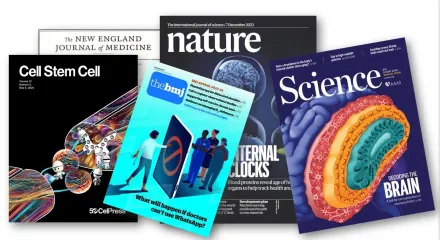
Top publications list
Current articles to which our researchers have contributed and that have been published in selected top-ranked journals.
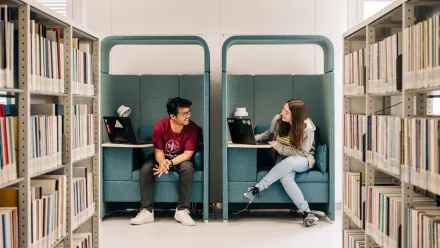
University Library
Find papers, advice about bibliometrics and publishing strategy, academic writing workshops, and much more.
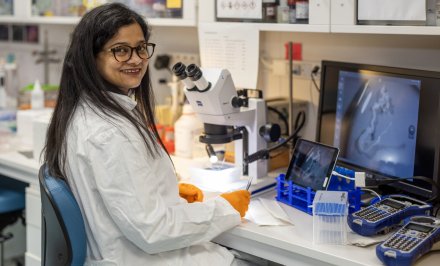
Working at KI
KI's vision is to be one of the leading medical universities in the world. Our committed and competent employees make this possible.
